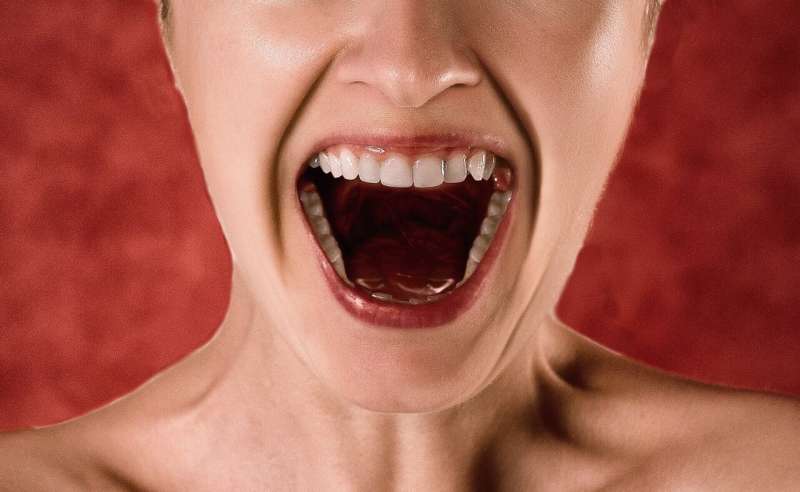This article has been reviewed according to Science X's editorial process and policies. Editors have highlighted the following attributes while ensuring the content's credibility:
fact-checked
trusted source
proofread
Researchers study how swearing gets its power to elicit emotional responses

Swearing is an entirely different and "more powerful" form of communication than regular language use, researchers have suggested.
Psychologist Dr. Richard Stephens of Keele University, along with colleagues from the universities of Ulster, Westminster, and Södertörn in Sweden, conducted a major review of more than 100 pieces of academic research, all of which discussed or researched the power of swearing. Their findings have been published in the journal Lingua.
The existing research they reviewed highlights that swearing has a multitude of physiological, cognitive, emotional and interactional effects. Dr. Stephens' own work, for example, has highlighted that it can be a useful tool for helping people deal with pain, and improve their performance during exercise. Other research by the authors has shown an array of specific interpersonal effects; from aggression and offense to humor, trust and social bonding.
The study team now want to find out what it is about swearing specifically that creates these effects. From their review, they found that very little is currently known about what makes this form of communication different from and so much more "powerful" than regular language use.
Dr. Stephens said, "If you ask most people to explain the power of swearing, they will probably give answer consistent with what we call the 'soap and water' hypothesis. The idea is people have some kind of childhood experience of being chastised by an adult for swearing, and the idea then is that the memory for this unpleasant encounter stays with the person and is forever associated with swearing. Unfortunately, the evidence for this in the current research is weak, so the jury remains out on the question of where swearing gets its power from."
Lead author Dr. Karyn Stapleton from the University of Ulster added, "Our review brought together studies from a wide range of fields—including linguistics, psychology and neuroscience—to try to understand how swearing differs from other forms of language use. Basically, we found that swearing does things that other language does not! We know that these effects do not come from the words themselves, a swear word in an unfamiliar language will seem just like any other word and will not produce any of these outcomes. A lot of the social impact of swearing comes from its potential to cause offense—but this does not explain how it acquires such profound physiological, emotional and cognitive significance for individuals."
More information: Karyn. Stapleton et al, The power of swearing: What we know and what we don't, Lingua (2022). DOI: 10.1016/j.lingua.2022.103406




















